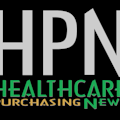Amid healthcare uncertainty, hospitals will lean even more on their GPOs
The debate over the future of the Affordable Care Act (ACA) and the ongoing transition from fee-for-service to value-based care suggest a healthcare system full of uncertainty for American hospitals. Hospital executives who were already operating under severe budget constraints will be asked to do even more with less. This moment of great change for healthcare portends an expanded role for an often-unheralded supply chain player: the group purchasing organization.
As a physician and former CEO of Regional Health, I know firsthand what it takes from a clinical and business perspective to help healthcare providers deliver first-class patient care.
The core mission of the GPO remains cost-savings – GPOs aggregate the purchasing power of providers to secure discounts and help procure the best products and services at the best value. A 2014 American Hospital Association (AHA) survey of hospital executives found that 90 percent of respondents were satisfied with the ability of their GPO to deliver cost savings, and an economic analysis of GPO operations prepared for the Healthcare Supply Chain Association (HSCA) estimated that GPOs save the healthcare system up to $55 billion annually.
Many providers, including some small and rural hospitals, lack the purchasing volume to obtain discounts on their own for specialized equipment and critical medical devices such as implants and diagnostic equipment. For these providers, the savings delivered by GPOs are particularly critical and will be even more so in the face of ongoing reimbursement challenges.
But the impact of our GPO extended far beyond cost savings. At Regional, our GPO was an invaluable partner for creating communities of knowledge – bringing together hospitals, physicians, and other experts and healthcare stakeholders to find collaborative solutions to pressing challenges and improve patient outcomes. For example, when we experienced drug shortages in the anesthesia space – medications that are critical to the day-to-day operation of hospitals – we were able to work with our GPO and their existing network to identify providers who had a surplus of these drugs so that we could continue providing critical patient care. These GPO collaborations extended to financial benchmarking, process improvements and best practice sharing, assessments of clinical advancements and new technology, and many other challenges.
Central to the utility of our GPO was its ability to anticipate and get out in front of timely and emergent healthcare issues. GPOs provided comprehensive educational material on complex issues. Additionally, when addressing future policy shifts or changes – a new Medicare initiative, for example – GPOs worked with members like Regional Health to identify what providers should prepare for and what potential vulnerabilities we faced in order to guarantee that we were as strong as possible moving forward. When the threat of the Zika virus emerged, GPOs worked with government agencies, hospitals, and first responders to identify treatment best practices, to track and procure necessary emergency supplies, and to develop educational materials on how to safely and effectively treat cases of the virus.
As hospitals face near total uncertainty over what will happen to the Affordable Care Act, and with Medicaid expansion, Medicare reimbursement, and a range of other challenging issues, hospital executives are assessing their vulnerabilities and trying to figure out how to best prepare for all contingencies. One of their first calls should be to their GPO. And for GPOs, the coming systemic change will be an opportunity to continue to prove their mettle.
Dr. Charles Hart is a retired physician and the former CEO of South Dakota-based Regional Health.


